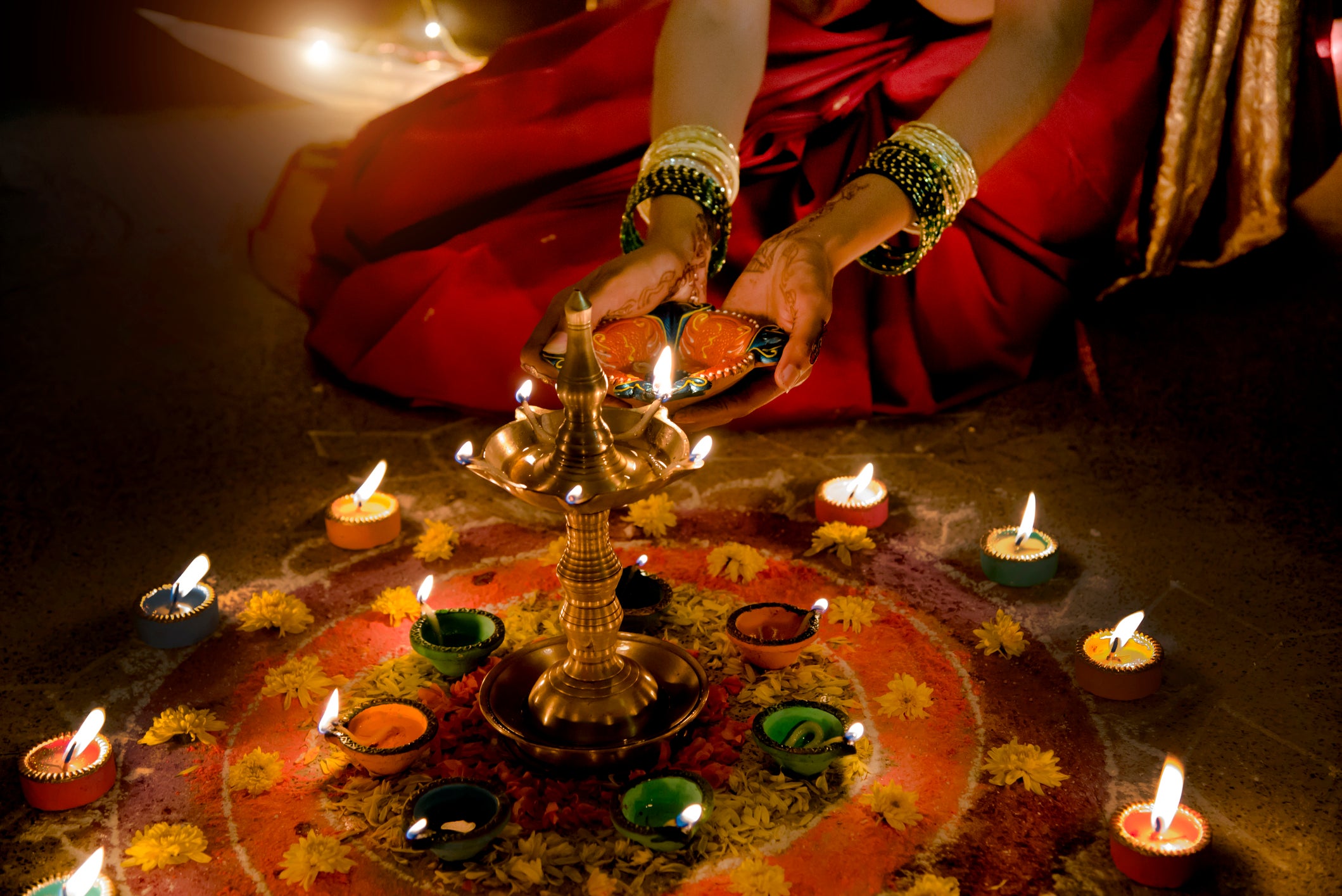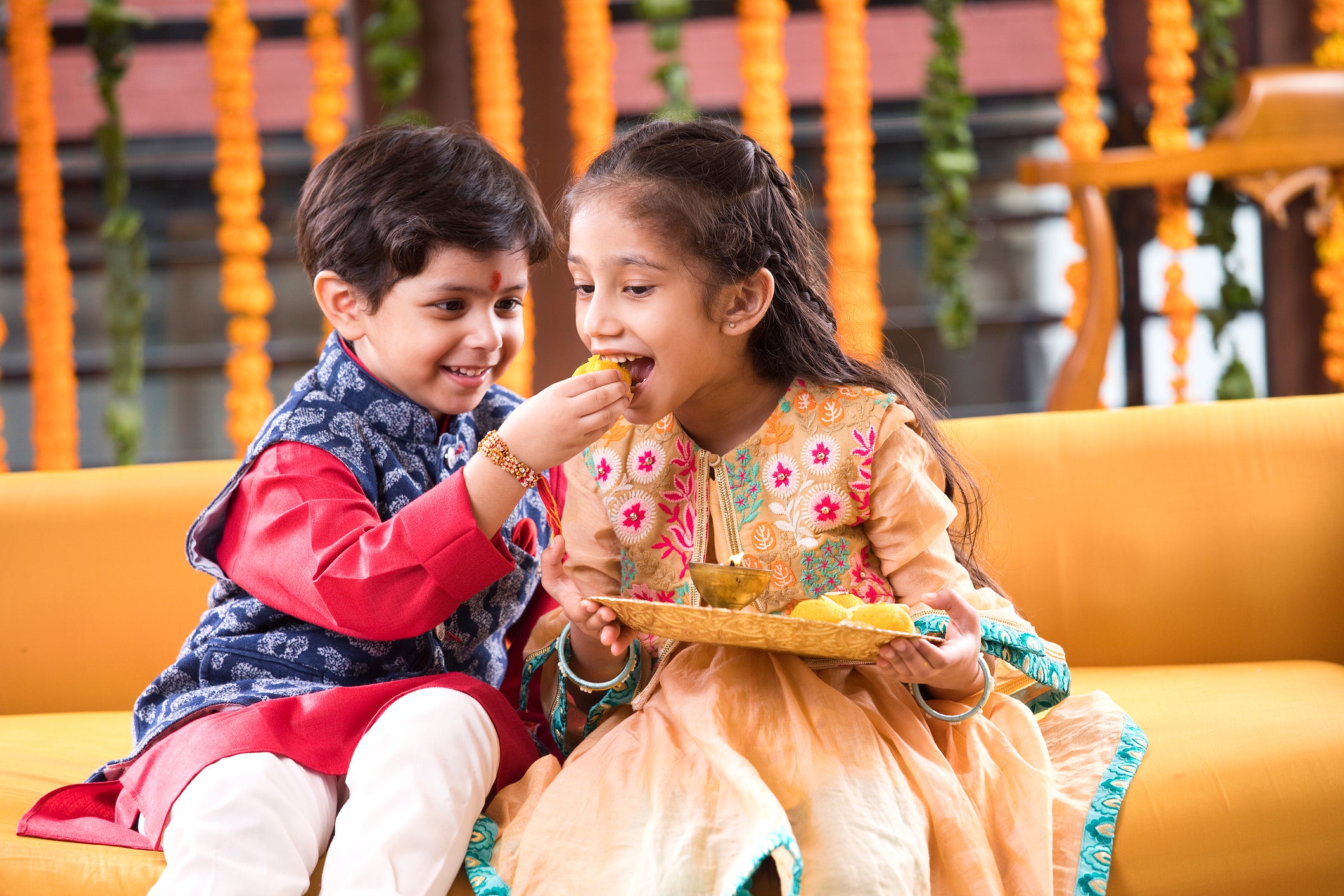Happy Diwali: When is the festival of lights and how is it celebrated around the world?
Diwali, the festival of lights, represents the triumph of good over evil
Diwali, the festival of lights, is a religious observance commemorated by Hindus, Sikhs, Jains and some Buddhists around the world.
Every autumn, the observance sees millions of people attend firework displays, prayer services and festive events in celebration of the occasion.
While Diwali holds significance for a variety of reasons, one of the core themes of the festival, as symbolised by the prevalence lights, is the triumph of good over evil.
Here is everything you need to know about Diwali:
What is Diwali?
Diwali, also known as Deepavali or Dipavali, comes from the Sanksrit word dipavali meaning “row or series of lights”.
Rajnish Kashyap, general secretary and director of Hindu Council UK, explains that the festival, which is one of the most significant for those of the Hindu faith, can trace its origins back to ancient times “when the end of the summer harvest season was celebrated with much pomp and splendour”.
“It signifies the triumph of light over darkness and good over evil and sees millions of lamps lit at homes, temples, shops and public buildings across the world,” Mr Kashyap tells The Independent.
Another main theme of Diwali is the recollection of a story called Ramayan, which details how the Hindu god Rama returned to his kingdom with his wife, Sita, and his brother, Lakshman, after several years of exile.

“To illuminate the path through which they return and in order to guide them home, diyas (clay lamps) are lit everywhere and the world is bathed in golden hues of light,” Mr Kashyap explains.
Lakshmi, the Hindu goddess of wealth, fortune and prosperity, is also celebrated in Hindu households during the festival.
Diwali coincides with the Sikh celebration of Bandi Chhor Divas, a religious holiday that commemorates the release of Sikh Guru Hargobind Ji from the Gwalior Fort in India in the 17th century.
“The Guru, who was imprisoned by the Mughal Emperor Jahangir, was standing against the emperor’s regime’s oppression of the Indian people,” says Gurmel Singh, CEO of Sikh Community and Youth Services and secretary general of the Sikh Council UK.
“Loosely translated, Bandi Chhor means ‘release of incarcerated people’. So to Sikhs, the festival represents freedom.”
Eleanor Nesbitt, professor emeritus at the Warwick Religions and Education Research Unit at the University of Warwick, adds that Buddhists and Jains “have other historical reasons” for celebrating Diwali.
When is the festival?
This year, the festival of lights will be celebrated on 31 October.
The festival typically lasts for four to five days and coincides with the new moon on the Hindu lunisolar calendar, called amavasya.
The new moon is the first lunar phase, which is when the moon and the sun have the same ecliptic longitude.
Amavasya is known as the “darkest night” among Hindus, and is regarded as a powerful force for both good and evil.
Diwali is preceded by Navaratri, another Hindu festival that is observed every autumn over the course of nine nights. This year, Navaratri ran from 3 October to 12 October.
Navaratri also symbolises the triumph of good over evil and commemorates the Hindu deity Durga, the goddess of war.
How is it celebrated?
As Diwali is a celebration of light triumphing over darkness, those who observe the festival typically decorate their homes with a plethora of lights.
People will also routinely clean their homes in preparation for Diwali, Mr Kashyap explains.
“In India every year, houses are cleaned, often renovated, and always illuminated with sparkling fairy lights and oil lamps,” he adds.
Mr Kashyap says many doorways and foyers are decorated with rangolis, beautiful, intricate patterns on the floor that are created using materials including rice, coloured sand and flower petals.
Gifts and sweets are also exchanged during Diwali, as are wishes for a “Happy Diwali”.

Mr Kashyap emphasises that while Diwali is "probably best experienced in India", it is a global celebration.
During Diwali, a variety of traditional sweet and savoury dishes are consumed.
One of the sweet dishes is called Lapsi Halwa, and is made from large-grain cracked wheat, cooked with ghee and sweetened with sugar and cardamom powder.
Read more about the symbolic foods eaten during Diwali here.
Join our commenting forum
Join thought-provoking conversations, follow other Independent readers and see their replies
Comments




Bookmark popover
Removed from bookmarks